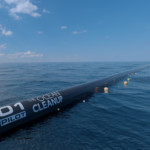 An anonymous reader writes: A confidential computer project designed to break military codes was accidentally made public by New York University engineers. An anonymous digital security researcher identified files related to the project while hunting for things on the internet that shouldn’t be, The Intercept reported. He used a program called Shodan, a search engine for internet-connected devices, to locate the project. It is the product of a joint initiative by NYU’s Institute for Mathematics and Advanced Supercomputing, headed by the world-renowned Chudnovsky brothers, David and Gregory, the Department of Defense, and IBM. Information on an exposed backup drive described the supercomputer, called — WindsorGreen — as a system capable of cracking passwords. Read more of this story at Slashdot.
An anonymous reader writes: A confidential computer project designed to break military codes was accidentally made public by New York University engineers. An anonymous digital security researcher identified files related to the project while hunting for things on the internet that shouldn’t be, The Intercept reported. He used a program called Shodan, a search engine for internet-connected devices, to locate the project. It is the product of a joint initiative by NYU’s Institute for Mathematics and Advanced Supercomputing, headed by the world-renowned Chudnovsky brothers, David and Gregory, the Department of Defense, and IBM. Information on an exposed backup drive described the supercomputer, called — WindsorGreen — as a system capable of cracking passwords. Read more of this story at Slashdot.
Read More:
NYU Accidentally Exposed Military Code-breaking Computer Project To Entire Internet

